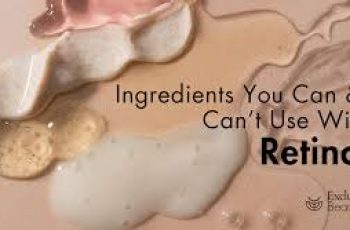
Night Masks vs. Night Creams: What’s the Difference and Which One Should You Use?
There’s no denying that we’re spoilt for choice when it comes to skincare. This often leads to a struggle to find a routine that’s right for you and your skin type. Things can get a little tricky when trying to figure out what the difference is between products that sound basically the same. Don’t panic, we’re going to get to the bottom of it and take a look at what night masks and night creams are, how they differ, and which one is best to use.
What is a Night Mask?
A night mask works on the same principles as a regular face mask, with the main difference being that, as you might guess, a night mask is something you wear overnight. Packed with active ingredients that transform your skin and address all of your concerns, like aging, dullness, and fighting breakouts. You’ll also find night masks come in lightweight or gel formulas that are perfect for nearly all skin types. A night mask, also known as a sleeping mask, is a highly effective skincare mask that nourishes your skin while you sleep. This allows the powerful blend of skin-boosting ingredients to absorb into the skin and penetrate the underlying layers without having to fight the environmental aggressors our skin comes in contact with every day, like free radicals, pollution, and UV damage.
Many skincare experts believe that night masks with ingredients such as hyaluronic acid, lactic acid, retinol or niacinamide work best on the skin while we sleep. This is because while we sleep, our skin can recover and repair any damage during the day, which allows the product to increase its effectiveness and you really notice a difference in the morning.
Can I use a night mask every night?
It really depends on what active ingredients are in the night mask. For example, frequent exposure to chemical peels may cause the skin to become sensitive to UV rays, which means the skin can become inflamed and red. If you use a night mask, think of it more as a treatment product rather than an important step in your nighttime skincare routine. How to avoid overusing a sleeping mask, which can cause skin reactions and tightness.
What is a night cream?
Compared to a night mask, night cream formulas are usually thicker, creamier, and are absorbed into the skin overnight. These creams are not as effective as night masks, so you can use them as part of your daily skincare routine. Night masks often contain ingredients that are not recommended for use during the day, such as: B. Retinol, allowing them to fully penetrate the skin and make a noticeable difference in the overall look and feel of your complexion.
When is the best time to apply a night cream?
It can be difficult to know the best time to use a night cream, especially since many of us go to bed at different times at night. It is recommended to apply a night cream before going to bed, preferably between 10 and 11 pm. Here is an example of a good nighttime skincare routine that will benefit your night cream and increase its effectiveness:
Remove all traces of makeup with makeup remover or micellar water
Cleanse your skin with a foam-free cleanser to remove any product residue and residue
Use a cotton pad soaked with acid toner to wipe your face, avoiding the eye area and removing the buildup of dead skin cells
Dab your serum of choice onto your skin
Finally, apply a night cream. Your skin should feel gooey while you go to bed
Do I really need a night cream and a night mask?
It’s not really necessary to use both products in your daily routine, but it’s a good idea to alternate between a few products to keep your skin looking and feeling as healthy as possible. If you find yourself with multiple issues, such as: If you have dullness, uneven skin tone, and signs of aging like fine lines and wrinkles, then using a night cream regularly will help address these issues and reduce these signs within 6-8 weeks. When you use a night mask, you have the freedom to choose when to use it, making it a more effective treatment product. It is perfect to use when you feel your skin needs something, such as: B. Extra boost of hydration and brightening.
Should I use a night mask or a night cream?
It really depends on your personal preference. If you find some signs of aging or other skin issues that can be treated with a daily night cream, then this is the best option for you. Remember to consider your skin type. For example, oily skin does not like heavy creams because this can lead to clogged pores. pores, acne, and blackheads.
Whichever product you choose, you will notice the appearance of wrinkles, firmer skin, and a brighter, clearer complexion.
Is there really a difference between day and night creams?
As you know by now, there are actually a lot of differences between night masks and night creams. The most important difference is how often you use them. Here is a quick summary of the differences and uses of each product:
Benefits of a night mask
The formula contains highly potent active ingredients
The consistency is usually a gel or light cream
Helps with issues like dehydration, breakouts and skin aging
The formula is too strong to be used every night and should be used as an occasional skin treatment
Best applied before bed so the product has enough time to penetrate the skin
Benefits of a night cream
The formula is not as strong as a mask so it can be used every night
Usually has a thicker, creamier texture
Very nourishing for the skin
Treats signs of aging like fine lines and wrinkles
Best used as the last step in your nightly bedtime routine
Hopefully today’s post has answered some of your questions about masks and night creams. Both products are very effective in treating the skin, reducing signs of aging, uneven skin tone and loss of firmness. Their formulas are rich in active ingredients and are powerful and work tirelessly while you enjoy your well-deserved beauty sleep. Don’t forget to read our dedicated blog post on the comprehensive benefits of masks for the skin.


